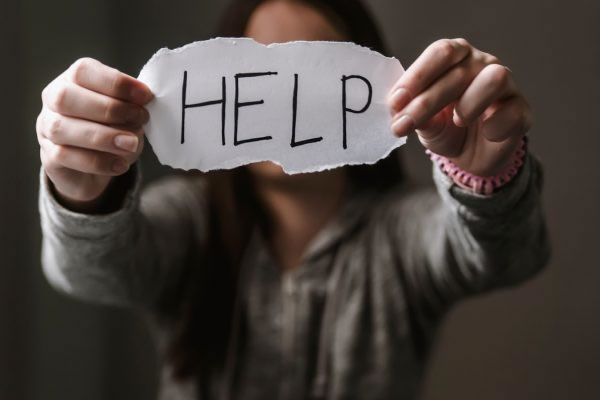Understanding Domestic Violence
Domestic violence is commonly known as spousal abuse or intimate partner violence. Relationship violence is the most apt term because domestic violence is violence directed against any family member or member of the household. It's not limited to romantic relationships. Domestic violence can happen to anyone across different cultural backgrounds, socioeconomic classes, at any age, and to a person of either gender.
Abuse Defined
Domestic violence is a form of control. The abuser uses violence to deter the victim from engaging in unwanted behaviors or to force the victim into performing acts against the victim's will. Often, violence is accompanied by manipulation and emotional or psychological abuse. Abusers threaten the victim's loved ones or use financial dependence and alienation to trap the victim in a cycle of abuse.
Defining Domestic Violence in the U.S. - Domestic violence is defined as any behavioral pattern with the intent of controlling or manipulating a member of the family or household.
Men Can Be Victims, Too - Men are often ashamed to report domestic violence because of the perception that only women can be victims of domestic violence and only men can be abusers.
Children as Victims - Even if children are not the direct targets of domestic violence, living in a domestic violence-filled environment affects children psychologically and emotionally.
Hidden Rural Dangers - The bucolic, peaceful nature of rural communities is undermined by domestic violence. Close-knit communities sometimes protect the abuser. When law enforcement has close connections with the abuser, the victim has nowhere to turn.
Why Do People Abuse?
People abuse others as a means of control and may be carried out for so many different reasons. There are environmental, cultural, mental illness, gender role stereotypes, personal history, and other reasons why an abuser might resort to violence against a family member or intimate partner, none of which are ever acceptable. Oftentimes, there is a cycle of violence and abuse in the personal history of the abuser. Exposure to and being a victim of domestic violence and abuse may contribute to one turning to similar methods of control in adult situations later in life.
Addicts as Domestic Violence Perpetrators - Drugs and alcohol exacerbate existing patterns of domestic abuse.
Risk Factors for Abuse - Certain factors make a perpetrator more likely to abuse others.
Reasons for Abuse - In addition to the need for control, the abuser wants to create an unequal relationship where the victim feels "less than".
Abuse Over Generations - People who grow up with domestic violence are more likely to use it as a control tactic in future relationships.
People who face domestic violence should seek help from an attorney to understand all of their legal rights.
FOR MANY MORE DETAILS ON THIS SUBJECT SEE WEBSITE
|
Victim Advocacy: Guide to Supporting Survivors of Domestic Violence

Victims of domestic violence need access to lifesaving information and emotional support to navigate the legal system, seek justice, and heal. That’s why domestic violence victim advocates are a vital resource. These professional advocates help victims receive the resources and assistance they need to cope and move forward as survivors.
Victim advocacy is a rewarding, complex profession, which requires the development of core interpersonal skills and crisis training experience. Read on to learn more about what victim advocacy entails and how to build a career as a domestic violence victim advocate.
What Is a Domestic Violence Victim Advocate?
A domestic violence victim advocate is a professional who provides vital support to victims of domestic violence. Domestic violence includes physical, emotional, sexual, or psychological abuse inflicted by a spouse, intimate partner, or cohabitant. The domestic violence victim advocate may provide access to:
Counseling resources and support groups
Information about legal rights
Medical care for physical and psychological recovery
Economic and job assistance
Safe and accessible housing
Emotional and legal support in court
Help with compensation applications
Assistance communicating with lawyers, family, and employers
Domestic violence victim advocates may be on call to provide support as needed and help victims make crucial decisions in the legal and recovery process.
PLEASE VIEW MORE ON THIS GUIDE ON WEBSITE
|
A Guide to Domestic Violence and Getting Help

We have a proven track record of success in handling over 15,000 criminal cases and consistently awarded as one of Ohio’s Best Criminal Defense Firms. We treat our clients like family with a non-judgmental approach. Knowledge is power in any situation. We are here to help educate you about your circumstances. Use our resources below to contact us and learn how we can help you.
When you hear the words “domestic violence,” you may automatically think about physical abuse between partners. However, domestic violence can involve much more than hurting someone physically with fists or feet. Domestic violence can also involve emotional and psychological abuse, stalking, or sexual assault, and other issues may be connected to a domestic violence situation as well, such as substance abuse or mental illness. Domestic violence transcends all ages, genders, ethnicities, religions, and social standings, and it can be a very complex and terrifying situation. Domestic violence is a criminal activity, and anyone being abused needs immediate help.
The statistics of domestic violence are startling, with an estimated 47 percent of all men and women in the United States being victims of psychological aggression perpetuated by an intimate partner at some time in their life. Domestic violence is also very underreported due to the personal nature of the abuse. Domestic violence is typically committed by a relative or an intimate partner. This type of violence happens among all races and ethnicities; however, multiracial people have the highest rate of victimization by an intimate partner.
Domestic violence involves hurting or controlling someone physically, psychologically, sexually, or financially, resulting in feelings of entrapment in a relationship or home. A victim of domestic violence will often fear for their life or the lives of children or pets. The abuser may prohibit contact with friends and family and may control finances. An abuser also projects shame and blame onto a victim. Victims often feel many different emotions, including fear, confusion, anxiety, and depression. It’s not unusual to feel conflicted emotions about the abuser, and withdrawing from family and friends is also common. Some people cope with the abuse by turning to drugs or alcohol.
PLEASE VIEW WEBSITE FOR MUCH MORE DETAIL
|












